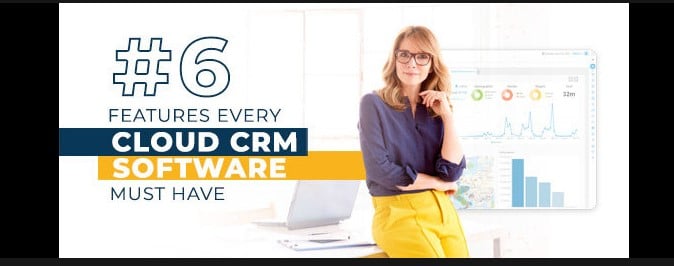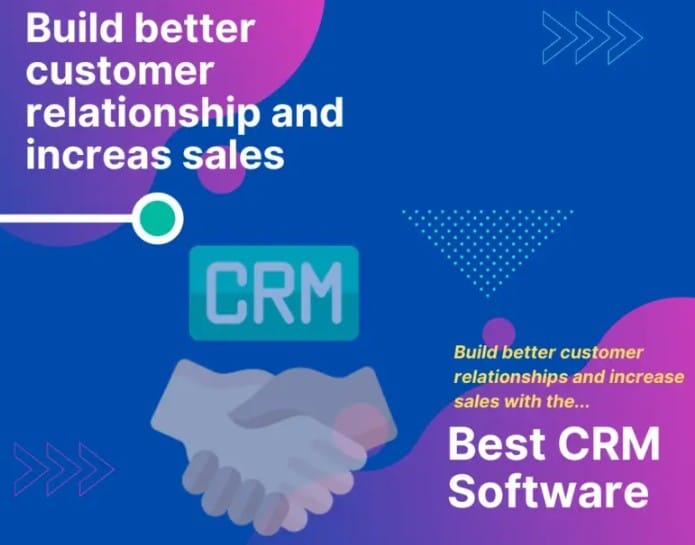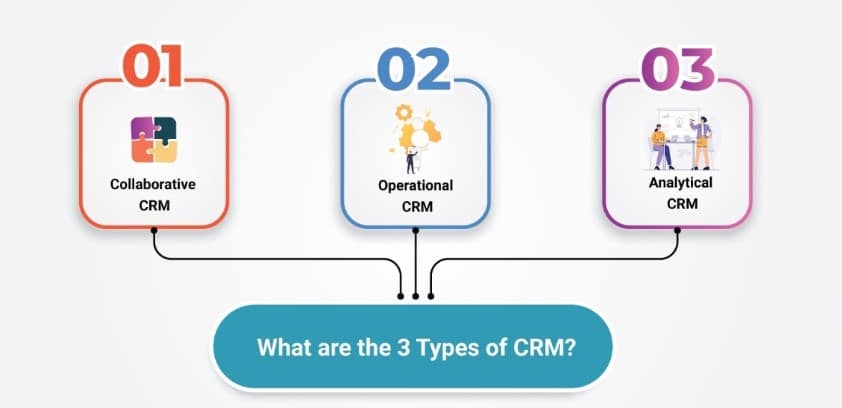In today’s fast-paced business environment, effective customer relationship management (CRM) is crucial for the success of any organization. Cloud CRM software has emerged as a powerful solution that offers numerous benefits and advantages over traditional on-premises CRM systems. This article explores the various advantages of using cloud CRM software and how it can revolutionize your business operations.
Cloud CRM Software: An Overview

Before diving into the benefits and advantages, let’s first understand what cloud CRM software entails. Cloud CRM refers to CRM systems that are hosted in the cloud, allowing businesses to access their customer data and manage interactions from anywhere, at any time, through an internet connection. This eliminates the need for expensive on-premises infrastructure and provides scalability, flexibility, and enhanced functionality.
The Benefits of Cloud CRM Software
Improved Accessibility and Mobility
With cloud CRM software, businesses can access critical customer information and manage their CRM activities from any device with an internet connection. Whether you’re in the office, at home, or on the go, you can stay connected and make informed decisions based on real-time data. This level of accessibility and mobility significantly enhances productivity and empowers sales and support teams to deliver exceptional customer experiences.
Cost Savings and Scalability
Traditional on-premises CRM systems often require significant upfront investments in hardware, software licenses, and maintenance. In contrast, cloud CRM software operates on a subscription-based model, allowing businesses to pay for the resources they need and scale up or down as required. This eliminates the need for costly infrastructure investments, making cloud CRM a more cost-effective solution, particularly for small and medium-sized enterprises.
Seamless Integration and Flexibility
Cloud CRM software offers seamless integration capabilities with other essential business systems, such as email marketing platforms, social media channels, and e-commerce platforms. This integration enables businesses to streamline processes, automate workflows, and gain a 360-degree view of customer interactions across multiple touchpoints. Additionally, cloud CRM systems provide the flexibility to customize workflows and functionalities to align with specific business requirements.
Enhanced Data Security and Backup
Data security is a top priority for any business, and cloud CRM software excels in this aspect. Cloud CRM providers employ robust security measures to protect sensitive customer data, including encryption, access controls, and regular security updates. Additionally, cloud CRM systems offer automated data backup and disaster recovery mechanisms, ensuring that your valuable customer information is safe and can be easily restored in case of any unforeseen events.
Real-Time Collaboration and Communication
Cloud CRM software fosters collaboration and communication among team members, regardless of their geographical locations. Multiple users can simultaneously access and update customer data, share insights, and collaborate on sales opportunities, providing a more cohesive and synchronized approach to customer relationship management. This real-time collaboration capability improves efficiency, minimizes duplication of efforts, and enables seamless teamwork.
Cloud CRM Software: Advantages for Different Departments
Sales Department
- Streamlined Lead Management: Cloud CRM software enables the sales team to efficiently manage leads, track sales activities, and nurture customer relationships. By capturing valuable lead information, sales representatives can prioritize their efforts, follow up on opportunities, and close deals faster.
- Enhanced Sales Forecasting: With access to real-time data and comprehensive sales analytics, sales managers can accurately forecast sales revenues, identify trends, and make informed decisions to drive business growth.
- Improved Sales Performance: Cloud CRM software provides sales teams with insights into their performance, allowing them to identify areas for improvement, implement sales strategies, and measure the success of their efforts.
Customer Support Department
- Efficient Ticket Management: Cloud CRM software offers robust ticket management capabilities, allowing customer support teams to track and resolve customer issues promptly. Support agents can assign, prioritize, and monitor tickets, ensuring timely resolution and customer satisfaction.
- Centralized Customer Data: Cloud CRM systems consolidate customer data in a central repository, giving support agents quick access to relevant information during customer interactions. This comprehensive view enables personalized support, reduces response times, and enhances the overall customer experience.
- Proactive Customer Support: With features like automated triggers and alerts, cloud CRM software enables proactive customer support. Support teams can set up notifications for specific events or customer behaviors, enabling them to anticipate needs, address potential issues, and deliver proactive support.
Marketing Department
- Targeted Marketing Campaigns: Cloud CRM software provides valuable customer insights and segmentation capabilities, empowering marketing teams to create targeted and personalized marketing campaigns. By leveraging customer data, marketers can deliver relevant messages, improve engagement rates, and drive higher conversions.
- Campaign Performance Analysis: With built-in analytics and reporting tools, cloud CRM software enables marketing teams to track the performance of their campaigns in real-time. Marketers can measure key metrics, identify successful strategies, and optimize future campaigns for better results.
- Integration with Marketing Tools: Cloud CRM systems seamlessly integrate with popular marketing tools, such as email marketing platforms and social media management tools. This integration streamlines marketing workflows, enhances campaign automation, and ensures consistent messaging across multiple channels.
Management and Leadership
- Data-Driven Decision Making: Cloud CRM software equips leaders and managers with comprehensive data and analytics to make informed decisions. Real-time insights into sales, marketing, and customer service metrics enable strategic planning, resource allocation, and goal setting.
- Performance Tracking and Evaluation: Cloud CRM systems facilitate performance tracking at both individual and team levels. Managers can monitor key performance indicators, identify top performers, and provide targeted coaching and training to improve overall performance.
- Enhanced Collaboration: Cloud CRM software promotes collaboration across departments by providing a centralized platform for data sharing and communication. Managers can encourage cross-functional collaboration, align objectives, and foster a culture of teamwork.
FAQs (Frequently Asked Questions)
Q: Can cloud CRM software be accessed offline? A: Most cloud CRM software requires an internet connection for real-time access. However, some providers offer offline capabilities or mobile apps that allow limited functionality when offline.
Q: Is cloud CRM software suitable for small businesses? A: Absolutely! Cloud CRM software is an ideal solution for small businesses as it offers cost-effective pricing, scalability, and eliminates the need for extensive IT infrastructure.
Q: How secure is cloud CRM software? A: Cloud CRM providers prioritize data security and employ robust security measures, including encryption, access controls, and regular security updates. They also offer automated data backup and disaster recovery mechanisms to ensure data safety.
Q: Can cloud CRM software integrate with other business systems? A: Yes, cloud CRM software provides seamless integration capabilities with other essential business systems such as email marketing platforms, social media channels, and e-commerce platforms. This integration streamlines processes and enhances data synchronization.
Q: Is training required to use cloud CRM software? A: While cloud CRM software is designed to be user-friendly, some training may be necessary to fully utilize its features and functionalities. Many providers offer training resources, tutorials, and customer support to assist users.
Q: Can cloud CRM software be customized to meet specific business requirements? A: Yes, cloud CRM systems offer flexibility and customization options to align with specific business processes and requirements. Users can customize workflows, fields, and functionalities to suit their unique needs.
Conclusion
In conclusion, cloud CRM software offers a wide range of benefits and advantages for businesses of all sizes. From improved accessibility and cost savings to enhanced data security and collaboration, cloud CRM software revolutionizes customer relationship management. It empowers sales, marketing, and support teams with real-time insights, streamlined processes, and the ability to deliver exceptional customer experiences.
By leveraging cloud CRM software, businesses can gain a competitive edge in today’s dynamic market landscape. The scalability, flexibility, and integration capabilities of cloud CRM systems enable organizations to adapt to changing customer needs and drive sustainable growth.
Embrace the power of cloud CRM software and unlock the full potential of your customer relationships!

